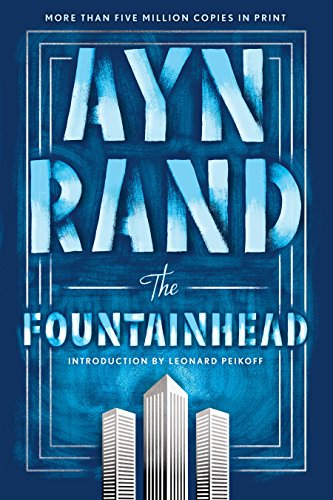
“The question isn’t who is going to let me, it’s who is going to stop me.” – Ayn Rand
To every objectivist, these words serve as the gospel of truth, and the author who penned down these words, as a liberator and a redeemer. Alice O’ Conner, under the pseudonym of Ayn Rand, the Russian Radical whose daring original literary philosophy – Objectivism, won immediate world wide acclaim, was born in St. Petersburg, Russia, on February 2, to a Russian-Jewish bourgeois family.
During her own lifetime Ms. Rand had not only become a famous icon, but also, a controversial figure. As a best-selling author she carried her visions and ideologies to Hollywood, to Congress, to the universal classrooms, to the editorial pages, to various radio programs and to numerous talk shows. “Her eyes were what everyone notices first. Dark and widely set, they dominated her plain square face.” says Jennifer Burns in Goddess of the Market: Ayn Rand and the American Right. “Her glare would cause a cactus to wilt.” announced Newsweek magazine but to Ayn rand’s admirers her eyes projected clairvoyance, insight, profundity. “When she looked into my eyes she looked into my soul and I felt she saw me” remembered one acquaintance. Readers of her books have the same feeling. Her words would penetrate deep into the core, stirring secret shelves and masked dreams, so did her novels. They arouse such feelings, and more importantly, such virtues that one might doubt if they previously had it slumbering in them, at all. A graduate student in psychology once remarked to her, “Your novels have had a profound influence on my life. It was like being reborn….. What was really amazing is that I don’t remember ever having read a book from cover to cover. Now I’m just the opposite. I am always reading. I can’t seem to get enough knowledge.”
According to Jennifer Burns, sometimes Rand provoked an unpropitious reaction. The libertarian theorist Roy Childs was so disturbed by The Fountainhead’s atheism that he burnt the book after finishing it. Her works launched him, as they did so many others, on an intellectual journey that lasted a lifetime. Her world-wide acclaim has only increased since her death in 1982.
As her philosophy has not just become well-known but also well-practised today, her books have sold in the millions and she is the subject of an Oscar-nominated documentary, a US postage stamp, University courses and a philosophical society devoted only to the study of her thoughts and ideologies. Fuelled by her vision of man as a heroic being and by the original philosophy behind it, people from all walks of life are saying the same thing: “ Ayn Rand’s writings have revolutionised my life.”
Ayn Rand penned down volumes urging people to be ‘selfish’. ‘What? Aren’t people too selfish already? Just do whatever you feel, mindless of what others think about you, be a thoughtless and careless jerk and exploit people to go ahead. Isn’t that what people normally mean by ‘selfish’? Is writing down volumes to support this ideology needed?’ you might question. Well, I wouldn’t necessarily call it ‘selfish’, rather, I’d call it ‘ethical egoism’.
You see, there’s a sharp contrast between the two phrases. What Rand advocates, is an illuminator to life that’s unlike anything you have ever heard before. ‘Ethical egoism’, in her philosophy, means: • Existence exists. Reality – that which exists has no radicals, no contender, nothing cutting across it. To embrace existence is to reject all notions of the supernatural and the mystical, including God. • Embracing reason as an absolute is idealistic. To choose to follow reason, we must reject emotions, faith, or any form of absolutism as escorts in life. • To protect the rights of each individual by placing the use of a vengeanceful physical force under objective control. At the most in our lives writes Rand, we “seek and noble division of men’s nature and of life potential.” Rands philosophy is that vision: Objectivism, a philosophy for living on earth
These are prominent in her novel, The Fountainhead, the seat of Ayn Rand’s daringly original literary piece containing the seeds of her groundbreaking philosophy, Objectivism and celebrating the controversial and enduring legacy of its author, which was published in 1943. It stands no less relevant among various sections of society today as it did then, because of its intrinsic themes that have proved themselves to be perpetual and indispensable to the existence of mankind. Since the post-World war and post-Depression epoch, the seeds of Individualism, Conformity and Objectivism and have been deep rooted in societal foundations of the world, exacting and striving to the narrow the estrangement in society between the ‘individual’ and the ‘non conformist’. However the paramount purpose that these themes served during the mid 1940s diverges considerably to the purpose these philosophies serve today. Much of the appeal has been nudged by the contrasting socio-economic conditions ubiquitous in society today, in the post-World War environs. The Fountainhead serves to convey the readers the despicable and tragic state of those who choose to live their life in dogging after the satisfactions of the expectations of others. The fact that the congruity of Rand’s ideology can be seen in the status quo that individuals are still bound by the shackles of societal norms and their full version from and therefore “perishing from an orgy of self sacrificing”, shows the true success of The Fountainhead in being able to disseminate a credo that strives to deliver man from all that prevents him from recognizing and becoming his true self.
By RAJESWARI ROY
